SpeakerGallery2023
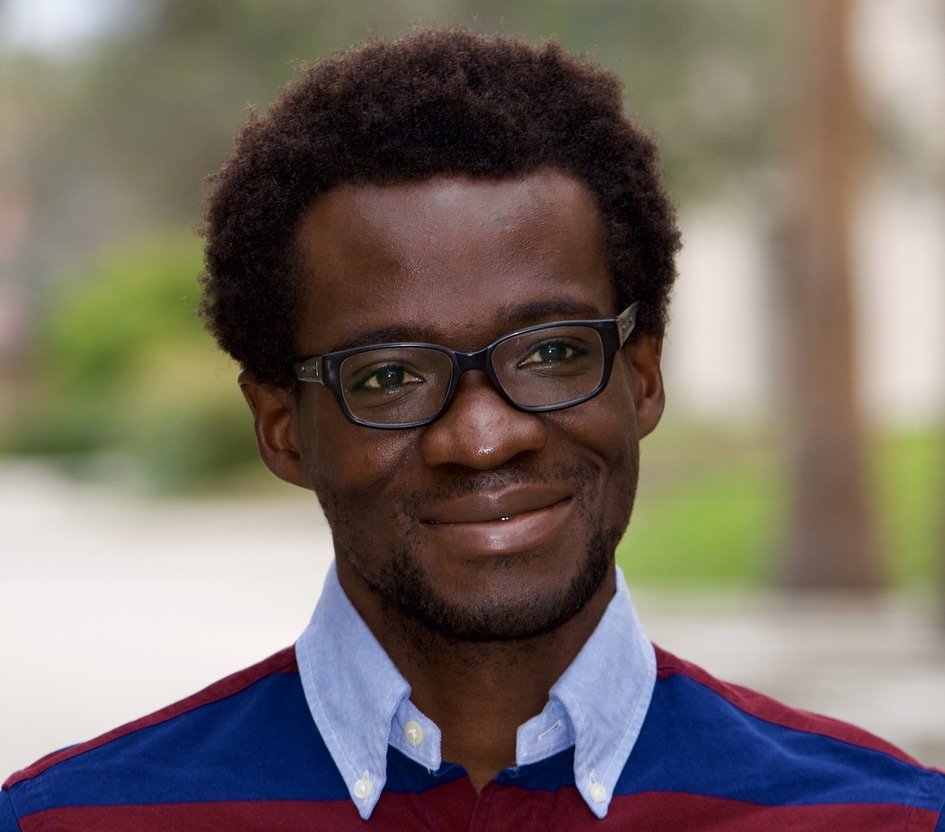
Kolade Adebowale
Current Institution: Harvard University
Department: Bioengineering
PhD Institution: Stanford University
Talk Title: Towards Mechanoimmunology for Precision Immuno-Oncology
Kolade Adebowale aims to benefit human health by leveraging the communication between cellular and mechanical factors in the tumor microenvironment. This research holds the potential to transform our understanding of how to manipulate the immune system. Dr. Adebowale received his Ph.D. in Chemical Engineering from Stanford and is now a post-doctoral fellow in Bioengineering at Harvard University.

Ismail Ahmed
Current Institution: New York University School of Medicine
Department: Neuroscience Institute
PhD Institution:
Talk Title: Optical Control of Oxytocin Signaling
Ismail conducts research at the intersection of chemical biology and neuroscience. Specifically, he is interested in determining how neuropeptide signaling modulates behavior and physiology in the context of both health and disease. To this end, he is working on developing a suite of novel chemical and molecular tools that can track and manipulate neuropeptides in real time.
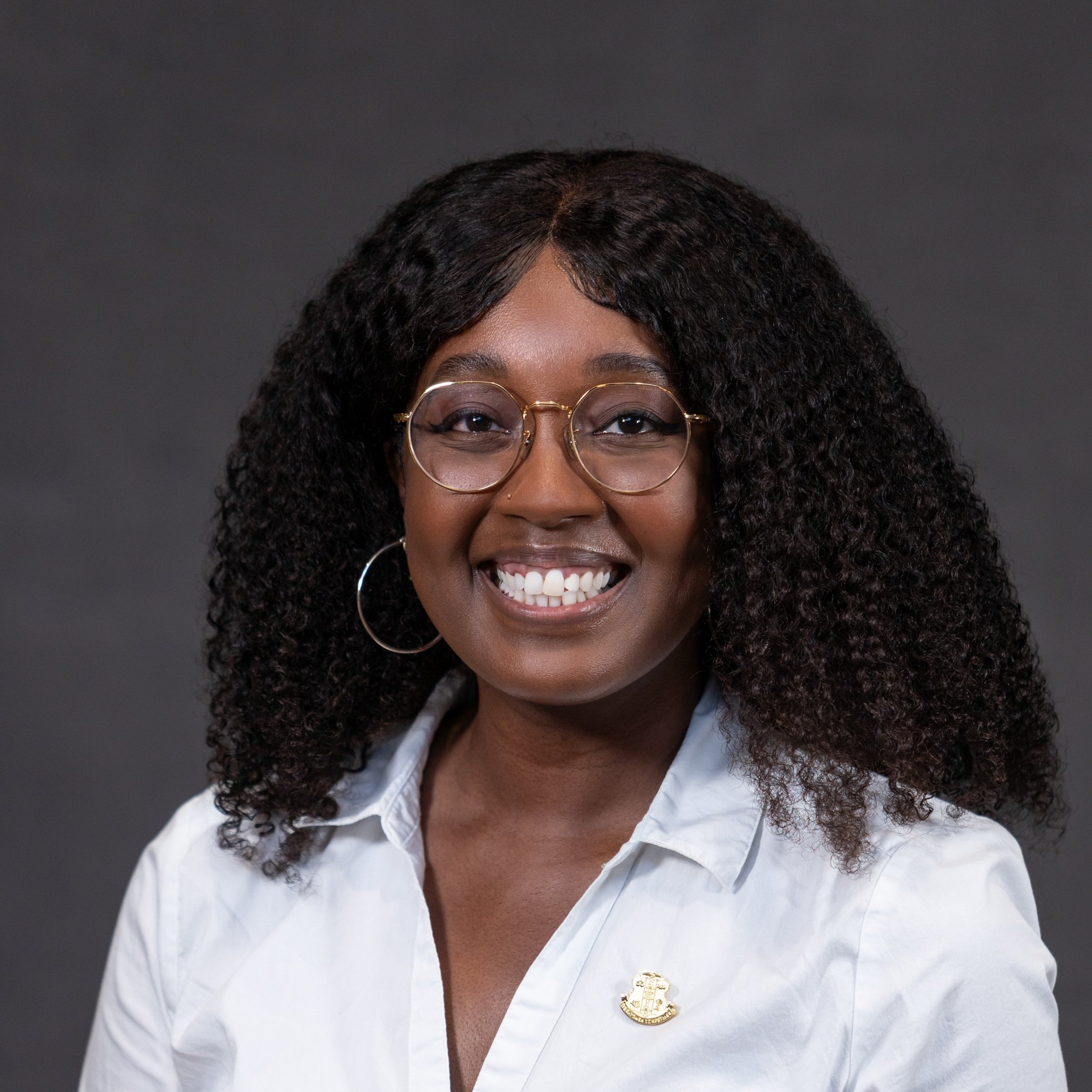
Meli'sa Crawford
Current Institution: University of California Riverside
Department: Biomedical Sciences
PhD Institution:
Talk Title: Mouse model reveals how environmental exposures disrupt gut barrier function
Dr. Meli’sa S. Crawford received her Ph.D. in Biology with a focus in Physiology from Arizona State University in 2019 where her dissertation work focused on the effects of poor dietary consumption on the development of obesity, metabolic syndrome and gut dysbiosis. In 2020, she began her postdoctoral research at the University of California, Riverside in the Division of Biomedical Sciences. Her current research focuses on elucidating the communication between the lungs and the gut by understanding how exposure to environmental pollutants induce chronic airway inflammation and alter intestinal barrier function. In March 2023, Dr. Crawford was awarded the UC President’s Postdoctoral Fellowship and hopes to continue her passion for mentorship, metabolic and gastrointestinal work as a tenure-tracked professor.

Selasi Dankwa
Current Institution: Seattle Children's Research Institute
Department: Center for Global Infectious Disease Research
PhD Institution: Harvard University
Talk Title: Kinase signaling in endothelial cells: Towards a molecular understanding of blood-brain barrier dysfunction and repair in cerebral malaria
Dr. Selasi Dankwa is a research scientist in Dr. Joe Smith’s group at Seattle Children’s Research Institute where she studies endothelial dysfunction and repair in the context of cerebral malaria. Her early postdoctoral research uncovered a potential mechanism by which binding of malaria parasites in blood vessels can disrupt the blood-brain barrier, contributing to brain swelling. She is now using systems biology and targeted approaches to dissect the endothelial barrier response to inflammatory stimuli while also investigating the utility of kinase inhibitors in repairing a leaky blood-brain barrier.

Lisa Eshun-Wilson
Current Institution: The Scripps Research Institute
Department: Integrative Structural and Computational Biology
PhD Institution:
Talk Title: Visualizing Some of Nature's Most Mysterious Machines Using Cryo-EM
Dr. Eshun-Wilson is currently a National Science Foundation Postdoctoral Fellow in the laboratories of Drs. Gabriel Lander and Andrew Ward at the Scripps Research Institute in La Jolla. She completed her PhD in the laboratory of Dr. Eva Nogales at UC Berkeley as a National Science Foundation Predoctoral Fellow. Her thesis work received the 2020 Cris Alvaro PhD Commencement Prize for excellence in research and community service. She is fascinated by the molecular machines that protect our cells from stress and uses cryo-EM to visualize mitochondrial “quality control” motors that do more than take out the trash.
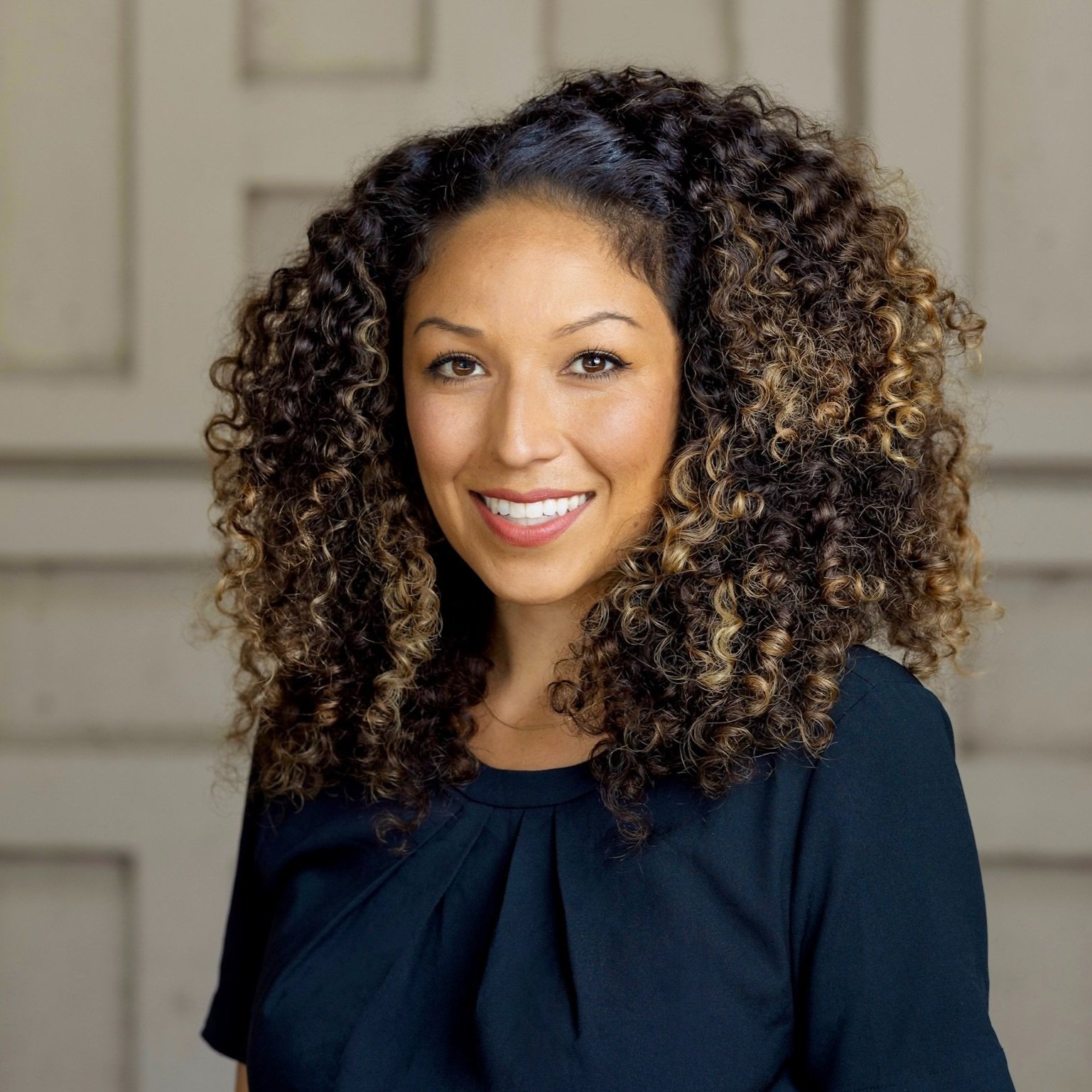
Shawna Follis
Current Institution: Stanford University
Department: Stanford Prevention Research Center
PhD Institution: University of Arizona
Talk Title: Quantifying Structural and Social Determinants of Cardiovascular Disease Disparities
Shawna Follis, PhD, MS, is a Clinical Instructor of Medicine at the Stanford Prevention Research Center in the Stanford University Department of Medicine. Previously, she was a Stanford Propel Postdoctoral Scholar from 2021 to 2023 and a NIH T32 Postdoctoral Fellow from 2020 to 2021. Dr. Follis is a social epidemiologist researching health equity, cardiovascular disease prevention, and structural racism.
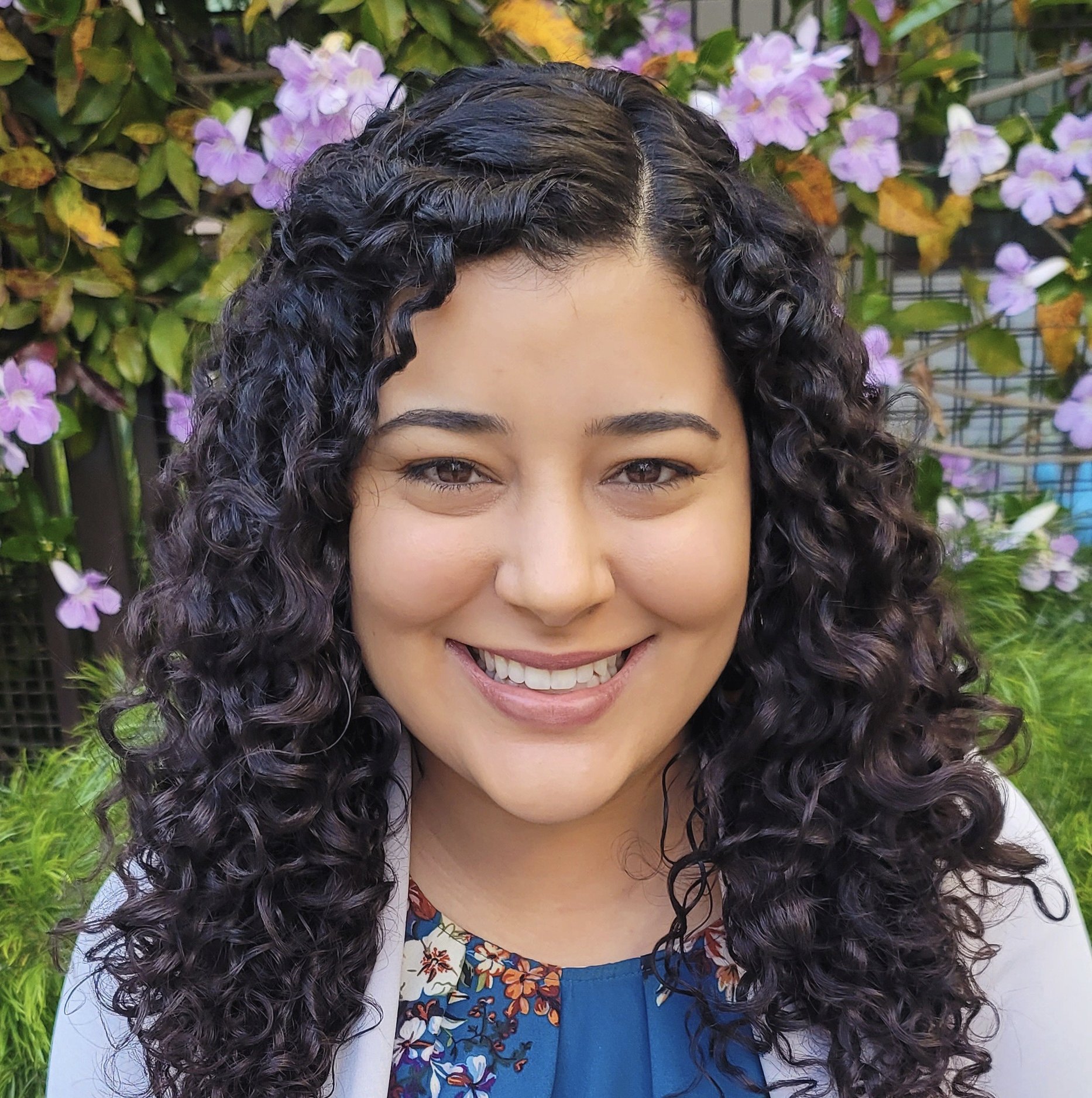
Eva González Diaz
Current Institution: UCSF
Department: Orthopaedic Surgery
PhD Institution: Stanford University
Talk Title: Leveraging bioengineering to elucidate the crosstalk between the microbiome, musculoskeletal tissues, and cancer progression
Dr. Eva González Díaz is a postdoctoral scholar in Chris Hernandez’s lab at UCSF, where she is investigating how the gut microbiome regulates aging in musculoskeletal tissues. She received her PhD in Bioengineering from Stanford University, where she developed engineered in vitro 3D models to study how the skeletal tissue environment influences cancer metastasis and drug resistance. Dr. González Díaz is a recipient of the Burroughs Wellcome Fund Postdoctoral Diversity Enrichment Program Award, NIH T32 Fellowship, Gerard J. Lieberman Fellowship, DARE Fellowship, EDGE Fellowship, and NSF-GRFP. Dr. González Díaz’s research program aims to develop engineered platforms to catalyze biological discovery at the interface of cancer, the aging musculoskeletal system, and the microbiome.
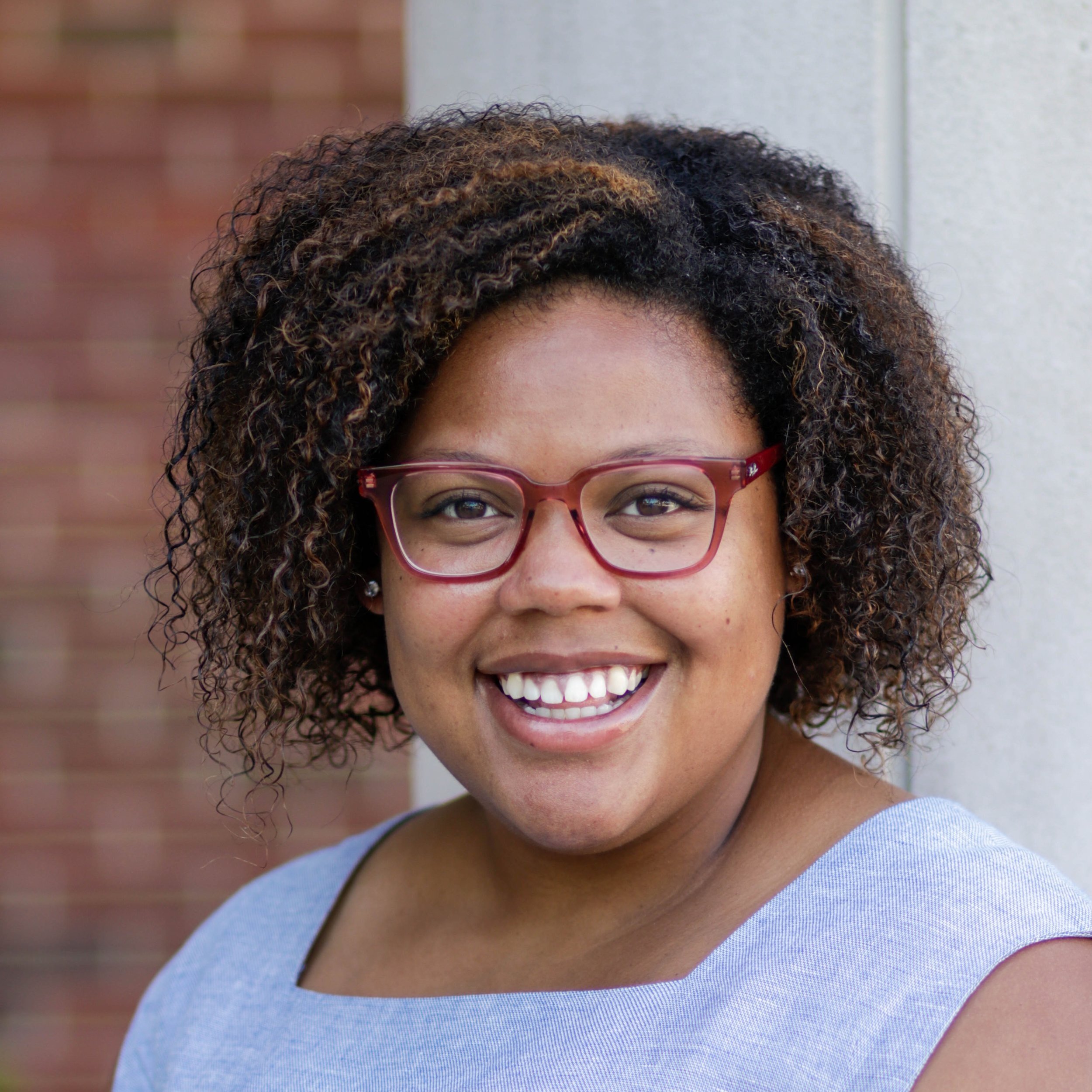
Lauren Hagler
Current Institution: Stanford University
Department: Biochemistry
PhD Institution:
Talk Title: Helping People Through RNA Biology and Structure
Lauren was born and raised in Birmingham, AL. She earned her Ph.D. in Chemistry at the University of Illinois at Urbana-Champaign combining organic synthesis and chemical biology developing RNA- and DNA-targeting drugs under the mentorship of Prof. Steve Zimmerman. She is currently expanding her expertise in RNA biology from translational to fundamental, combining biochemistry and genomics to study RNA interactions in cells as a HHMI Hanna H. Gray Fellow advised by Prof. Dan Herschlag (Stanford) and Prof. Silvi Rouskin (Harvard Medical School).

Luis Hernandez-Nunez
Current Institution: Harvard University
Department: Molecular and Cellular Biology, Center for Brain Science
PhD Institution: Harvard University
Talk Title: The brain-body balancing act: The molecular, cellular, and circuit mechanisms underlying the function and development of internal organ feedback control systems
Luis Hernandez-Nunez is a Warren Alpert Distinguished Scholar, a Branco Weiss fellow, and a Life Sciences Research Foundation (LSRF) postdoctoral fellow at the laboratory of Florian Engert at Harvard University. Luis’ research is focused on the circuit mechanisms for heart-brain interactions in zebrafish. Luis has also been awarded a Burroughs Wellcome Fund Career Award at the Scientific Interface (BWF-CASI) to support his transition to a junior faculty. Luis obtained his Ph.D. in systems biology from Harvard in 2020. He conducted his doctoral research in Aravinthan Samuel’s lab, where he discovered molecules, cells and circuits that mediate thermal homeostasis in larval Drosophila. Before graduate school, Luis was an undergraduate and then a postbac researcher at Thierry Emonet’s lab at Yale University. Prior to moving to the U.S., Luis studied mechatronics engineering at the National University of Engineering in Peru.
CV

Antonio Tinoco Valencia
Current Institution: Harvard University
Department: Chemistry and Chemical Biology
PhD Institution:
Talk Title: Deciphering Human Gut Microbial Cholesterol Metabolism Using Chemical and Engineering Tools
Antonio (he/him) was born in Guanajuato, México, and immigrated with his family to Los Angeles, CA as a young child. Antonio obtained a BS in chemistry from California State University, Los Angeles in 2015 and moved cross-country to Upstate NY to complete his PhD in chemistry as a NASEM Ford Foundation fellow with Prof. Rudi Fasan at the University of Rochester. In the fall of 2020, Antonio started his postdoctoral training with Prof. Emily Balskus in Department of Chemistry and Chemical Biology at Harvard University, and he is investigating the microbial metabolism of cholesterol in the human gut microbiome and its impact on human health.

Louai Labanieh
Current Institution: Stanford University
Department: Stanford Cancer Institute
PhD Institution: Stanford University
Talk Title: Engineering safer and more effective cell-based immunotherapies
Dr. Louai Labanieh is a Parker Scholar and postdoctoral researcher at the Stanford Cancer Institute and holds a PhD in Bioengineering from Stanford University. As a clinically oriented bioengineer, he leverages synthetic biology and protein engineering to develop smarter, safer, and more effective cell- and gene-based therapies. Dr. Labanieh has co-authored 25 research articles in top-tier journals and is an inventor of multiple patents that have been licensed to biotechnology companies. He has a passion for community outreach and has led several efforts focused on engaging community college students in bioscience research.

Kekoa Taparra
Current Institution: Stanford University
Department: Radiology
PhD Institution:
Talk Title: Combating Structural Racism for Native Hawaiian and Other Pacific Islander Health Data
Dr. Kekoa Taparra is an Indigenous Native Hawaiian physician-scientist born and raised in Hawaiʻi who earned his PhD from Johns Hopkins and his MD from Mayo Clinic and currently pursuing his MPH. He is a resident physician and postdoctoral medical fellow at Stanford Health Care in the Department of Radiation Oncology where he focuses on Native Hawaiian and other Pacific Islander health with his work published in journals including the New England Journal of Medicine, the Lancet, and JAMA. He is passionate about mentoring his 20 students in his Pacific Islander Health focused lab and engaging in leadership with his appointment as an inaugural President Barack Obama Foundation USA Leader.

Claudia Varela
Current Institution: Boston University
Department: Biomedical Engineering
Tatlk Title: A Sutureless Patch Platform for Modulation of Biomechanics in the Acutely Infarcted Heart
Dr. Claudia Elena Varela is a scientist, professional dancer, and STEM diversity advocate from Reynosa, Mexico. She graduated Cum Laude from UC San Diego with a Bioengineering B.S. and a Dance B.A., conducting research with Dr. Francisco Villarreal. She earned her Ph.D. in Medical Engineering and Medical Physics at the Harvard-MIT Program in Health Sciences and Technology under Dr. Ellen Roche's mentorship with support from the NSF’s GRFP and Ford Foundation Predoctoral fellowship. Currently, Dr. Varela is pursuing her postdoctoral training with Dr. Christopher Chen at Boston University, supported by a Ford Foundation Postdoctoral Fellowship.
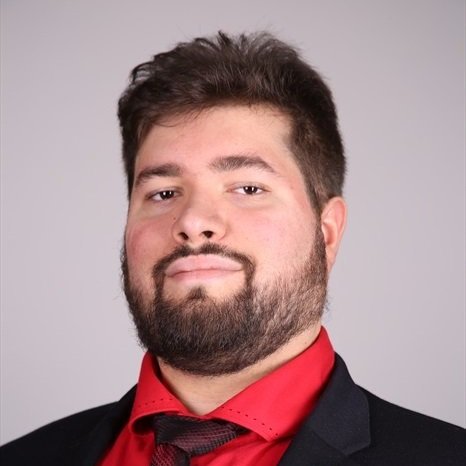
Juan Vazquez
Current Institution: UC Berkeley
Department: Integrative Biology
PhD Institution: University of Chicago
Talk Title: A Tale of Two Clades:Evolution of Longevity at its Extremes
Juan Manuel Vazquez is a Puerto Rican scientist studying the evolution of longevity-associated traits across tissues in extraordinarily long-lived species at the University of California, Berkeley.